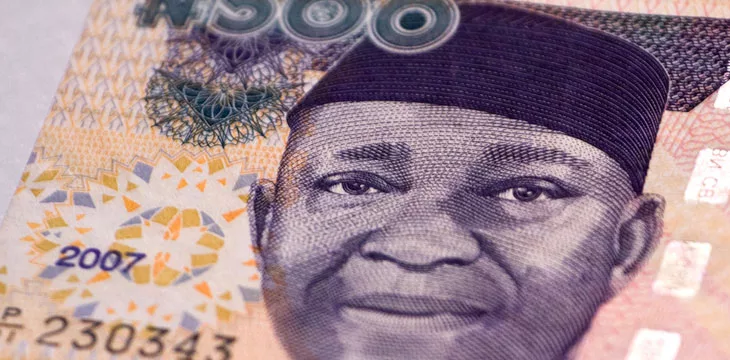|
Getting your Trinity Audio player ready...
|
Two years after it launched Africa’s first central bank digital currency (CBDC), the eNaira, Nigeria is set to launch a new naira-pegged stablecoin that the West African country hopes will fare better than the ill-fated CBDC.
Known as the cNGN, the new stablecoin will be pegged to the naira and fully backed by deposits in designated commercial banks. It’s being developed by the Africa Stablecoin Consortium, which consists of Nigerian banks and fintechs, and is set to be launched by the end of February.
The goal is to make the naira a global currency fit for the digital age, the consortium said in a recent statement, as reported by local media.
“The cNGN ushers in a new era of financial fluidity, bridging the Nigerian Naira with the global market through blockchain technology. Backed 1:1 by Naira reserves held in designated commercial banks, the cNGN Stablecoin transforms the Naira into a dynamic tool for worldwide remittances, commerce, trade and investment,” it said.
The cNGN launched over two years after the Central Bank of Nigeria (CBN) launched the eNaira, Africa’s first CBDC and the second globally after the Sand Dollar in the Bahamas. Established to much fanfare and great expectations, the eNaira has been a big disappointment. It has failed to garner the interest of Nigerians, who either believe the existing solutions are better or distrust the central bank.
That the eNaira isn’t conveniently available in banking and fintech apps—although it was initially—just makes the onboarding much more complex and pushes users away.
The cNGN will address the shortcomings of the eNaira, the consortium says. It will be available on some public blockchains, similar to the global stablecoins like USDC, which the consortium believes will make it a global solution.
The end of the eNaira?
Nigeria is Africa’s largest economy and leads the continent in the adoption of digital assets. Globally, it ranked second for P2P trading volume and was second for Bitcoin adoption. However, only 45% of the country’s 106 million adults are banked.
While the eNaira’s primary target was bringing this vast populace into the formal financial space, cNGN mainly focuses on cross-border funds transfers.
“More than just a currency, cNGN shortens settlement times, enabling payments that traverse the globe swiftly, mirroring the speed of a text message and at a fraction of the cost,” the consortium says.
It added, “This breakthrough paves the way for instantaneous financial transactions, seamlessly connecting Nigeria’s vibrant economy with international markets and offering unprecedented efficiency in both domestic and global financial interactions.”
Remittances are critical for Nigeria. According to the World Bank, Nigeria received $20.1 billion in remittances last year, the eighth highest globally and second in Africa after Egypt. However, like the rest of the continent, Nigerians pay stiff fees to receive remittances. Africans pay an average of 8.5% in remittance fees, higher than the global average of 6%. Some countries like Angola and Namibia incur up to 20% in fees.
The new stablecoin will seek to address this challenge. “Sending money home feels like sending a text message, effortless and instant,” says the consortium.
“No more agonising days waiting for remittances to clear. With cNGN, supporting your loved ones back home becomes as simple as a quick tap on your phone,” it added.
The cNGN is targeting a market that proved too challenging to crack for the eNaira, a digital currency that had the backing of the Nigerian government. One of the pitfalls of eNaira is the CBN’s ‘all-by-myself’ approach, which secluded commercial banks and other financial service providers. This isolated the digital currency, with the requirement to download a dedicated wallet for the eNaira being one of the biggest impediments to its adoption.
To learn more about central bank digital currencies and some of the design decisions that need to be considered when creating and launching it, read nChain’s CBDC playbook.
Watch: Digital Nigeria 2023 highlights Nigeria’s effort to leapfrog into the modern world

 01-28-2026
01-28-2026 




